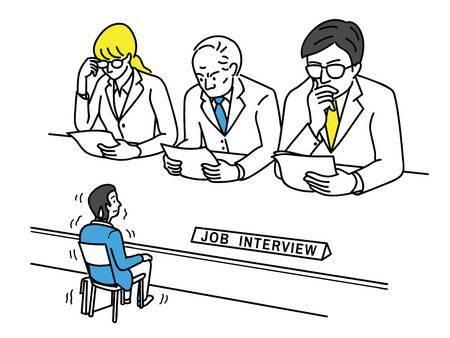Have a job interview coming up and have been invited to give a seminar to the committee/school/department/institute?
Here are some handy tips for giving the best interview-tailored seminar (modified excerpt from The Effective Scientist)
If you have not yet had the opportunity to be grilled (interviewed) for a new job, you might not appreciate the importance of giving the best seminar of your life to increase your chances of getting the job you want. Normally in most academic settings, a group of the most qualified candidates for an advertised position will be invited to give a seminar to the main group (department, school, or centre) for whom they could be eventually working if successful.

While all of the standard advice applies to this type of seminar too, there are some specific issues that the candidate must also ideally take into consideration. Unfortunately, many of these seminars are just awful, serving only to bathe the aspirants in an unflattering spotlight of incompetence.
To avoid people thinking that you are not up to the job on offer, here are some important points to remember.
It is entirely reasonable to be more nervous for this sort of presentation than your average conference or public seminar; after all, your very salary could depend on it. Practice of course makes perfect (or at least, acceptable), but do note that the audience will be sympathetic to your butterflies.
That said, avoid at all costs stuttering through an ill-prepared component of your presentation. Some people use pocket cards with notes, and others rely on presenter notes in software like Prezi, Powerpoint, or Canva, to get through the sticky spots, although I have it on good authority from several academics employed at some of the world’s top-ranked universities that constant note-checking is not a good look. For that reason, memorising and practicing your talk many more times than you would normally are essential — close colleagues and friends make excellent pre-interview test audiences.
Start by telling your audience (which will include members of the selection committee, and quite possibly many more senior representatives of the administration) what your take-home message is, and why your research is important. In other words, do not wait until you are twenty-five minutes into your presentation before you do this.
It is also a good idea to structure your presentation into approximately ten-minute segments that highlight different components of your research portfolio. If, for example, one segment ends up taking you longer than expected, or by reading your audience you realize that they are more interested in one segment relative to another, you can essentially customise your presentation on the fly.
This will allow you to demonstrate three important things: that you (i) have a diverse and interesting research programme, (ii) are versatile, and (iii) can keep to time. Depending on the time allotted (usually 45 to 60 minutes), you can then ensure that you leave adequate time for questions, and your committee will absolutely demand that you leave enough time for questions (after all, this is part of the interview process). You can sink your entire pitch merely by going over time and preventing questions, and more importantly, by delaying your audience from getting a drink at the pub afterwards.
Technical content requiring description is certainly acceptable, but you must remember that you are presenting to a generalist audience who will not necessarily be familiar with the details of your sub-discipline. If you must be technical, explain the elements in gory, simplified detail if you deem them to be essential components of your research portfolio.
And just like you started the seminar, repeat your main message at the end, especially the part about why it is so bloody important. One final reminder about those nasty, stumping questions — you are much more likely to be asked questions of this sort because your committee will be testing your resolve and composure. If you are asked something to which you honestly do not know the answer, then it is even more important than usual not to invent one. If you do not have a clue, do not say that you do by bumbling through an embarrassingly vague attempt at a pointless, and likely incorrect, response.
CJA Bradshaw

